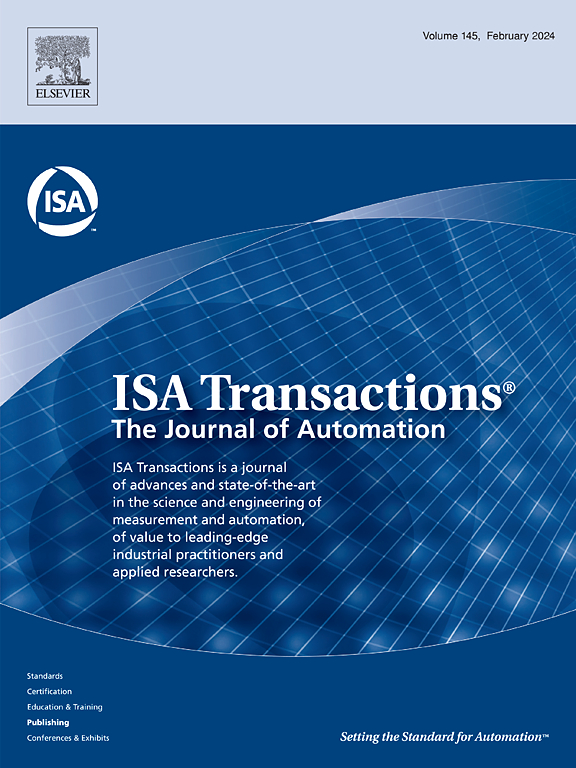Polytopic inclusion-based model predictive control for quasi-LPV systems using vertex system models and gain scheduling
IF 6.5
2区 计算机科学
Q1 AUTOMATION & CONTROL SYSTEMS
引用次数: 0
Abstract
This paper proposes a Model Predictive Control (MPC) strategy for a class of Quasi-Linear Parameter-Varying (quasi-LPV) systems characterized by a measurable time-varying parameter. The core of the proposed quasi-LPV-MPC controller lies in the utilization of a polytopic representation along with a gain-scheduled controller. A terminal cost that depends explicitly on the scheduling parameter is used. However, for the implementation, a complementary cost function is used to frame the optimization problem at each vertex level so that the requirement of updating the varying parameters over the prediction horizon is relaxed. Though the resulting suboptimal controller involves more computational burden, the proposed method demonstrates improvement in control performance over traditional MPC schemes. Experimental validation on a cascaded coupled tank system underscores the practical efficacy of the proposed quasi-LPV-MPC controller, while simulation studies on a twin rotor multi-input multi-output system serve as an additional demonstration example case. Comparative performance evaluations against both linear and nonlinear MPCs clearly illustrate that the quasi-LPV-MPC offers better control precision, adaptability, and the overall system responsiveness, thus positioning it as an effective solution for quasi-LPV systems.
基于顶点系统模型和增益调度的拟lpv系统多面体模型预测控制。
针对一类具有可测时变参数的准线性变参系统,提出了一种模型预测控制策略。提出的拟lpv - mpc控制器的核心在于利用多面体表示和增益调度控制器。使用了显式依赖于调度参数的终端开销。然而,在实现过程中,我们使用了一个互补的代价函数来构建每个顶点级别的优化问题,从而减轻了在预测范围内更新变化参数的要求。虽然所得到的次优控制器涉及更多的计算负担,但与传统的MPC方案相比,所提出的方法显示出控制性能的改进。在级联耦合油箱系统上的实验验证验证了所提出的准lpv - mpc控制器的实际有效性,而在双转子多输入多输出系统上的仿真研究则作为额外的验证案例。对线性和非线性mpc的性能比较评估清楚地表明,准lpv - mpc具有更好的控制精度、适应性和整体系统响应能力,因此将其定位为准lpv系统的有效解决方案。
本文章由计算机程序翻译,如有差异,请以英文原文为准。
求助全文
约1分钟内获得全文
求助全文
来源期刊

ISA transactions
工程技术-工程:综合
CiteScore
11.70
自引率
12.30%
发文量
824
审稿时长
4.4 months
期刊介绍:
ISA Transactions serves as a platform for showcasing advancements in measurement and automation, catering to both industrial practitioners and applied researchers. It covers a wide array of topics within measurement, including sensors, signal processing, data analysis, and fault detection, supported by techniques such as artificial intelligence and communication systems. Automation topics encompass control strategies, modelling, system reliability, and maintenance, alongside optimization and human-machine interaction. The journal targets research and development professionals in control systems, process instrumentation, and automation from academia and industry.
 求助内容:
求助内容: 应助结果提醒方式:
应助结果提醒方式:


